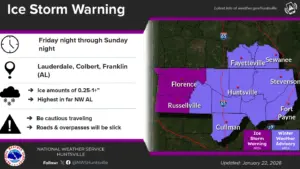Lights, Camera, Alabama
By Staff
Re. Johnny Mack Morrow
Over the years, there have been dozens of movies that feature Alabama as a prime part of the plot. Who could ever forget the blockbuster movie Forrest Gump? The lead character hailed from the fictional Greenbow, but there was nothing fictitious about which state he came from: Alabama.
The problem is Forrest Gump was not filmed in our state; it was shot mostly in South Carolina. It is the same with other movies that feature Alabama prominently as the setting. The movie Fried Green Tomatoes, written by Alabama author Fannie Flagg and based on the Irondale Caf/, was actually filmed in Georgia. Sweet Home Alabama, The Guardian, and Crazy in Alabama all took place in our state but were shot somewhere else.
Few films are actually shot here–not because we lack locations or personnel, but because Alabama was one of only a handful of states that provided no incentives to movie productions. Film is a big business, and without some state support, projects that could have come to the state have gone to Louisiana or other southern states.
Alabama has had tremendous success in providing incentives to attract industries like automotive manufacturing. Our experience shows that partnering with an industry and providing some investment often creates a tremendous return in jobs and economic development.
Recognizing the opportunity to attract film producers, the Legislature recently passed the Entertainment Industry Incentive Act of 2009. Rep. Richard Lindsey (D-Centre) sponsored the bill, which is now law. Under the statute, a qualified movie production company can receive a tax break equal to 25 percent of state-approved expenses, excluding payroll paid to Alabama residents, and a tax break equal to 35 percent of all payroll going to Alabama residents.
Now the law itself is pretty conservative, and doesn't allow just anybody to come and say they will produce a movie in order to get a tax break. To qualify for the incentives, the expenses for a film production have to be at least $500,000, but be no more than $10 million in costs within the state. A qualified production company that spends $150,000 or more for multiple projects within a year gains an exemption from state sales, use and lodging taxes.
The state film office and the revenue department will be responsible for establishing the criteria that production companies must meet to qualify for the incentives.
Lindsey used the best elements from legislation from other states to give Alabama a responsible and solid base to start up Alabama's film industry. We showed the legislation to film producers for feedback, and targeted the incentives not for the largest budget films, but those small to medium productions that could be a sustainable basis to build our local industry.
When a film is shot in the state, the economic benefits can be enormous, from equipment rentals to food services. Moreover, there is a real possibility of establishing some permanent film infrastructure that could be an economic engine in the future.
Alabama has a tremendous literary history and culture, one that often spills onto the silver screen. It will be nice when actual Alabama locations can be seen on that screen as well, along with jobs those films create.








